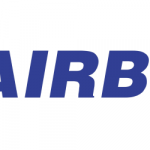IQT NYC Online: US Quantum Policies

(IQT NYC ONLINE) Joseph Broz — Vice President Strategy and Applied Sciences Department Head, SRI International, and Executive Director and Governing Board Chairman, The Quantum Economic Development Consortium (QED-C) and Paul M. Dabbar — DoE – Under Secretary for Science; discussed the purpose of their agencies in the context of the 2018 United States Public Law: 115-368 Calls for NIST to create a “consortium of stakeholders” to identify needs to support development of a robust QIST industry in the United States.
PL: 115-368 calls for:
Choosing a science-first approach
Creating a quantum-smart workforce
Deepening engagement with industry
Providing critical infrastructure
Maintaining national security and economic growth
Advancing international cooperation<
Jospeh Broz, of the Quantum Economic Development Consortium (QED-C) explained the Consortium Goals
Assess the current research on those needs
Identify gaps in the research necessary to meet those needs
Provide recommendations on how the NQI can address those gaps
NIST selected SRI to manage the Quantum Economic Development Consortium (QED-C) in 2018
Mission of QED-C: Enable and grow a robust U.S. quantum industry
Identify economically important applications
Identify and develop strategies to address gaps in the following areas
Enabling technologies (create roadmaps for cryogenics, electronics, lasers, etc.) − Standards, benchmarks and performance metrics
Workforce
Facilitate industry coordination and interaction with Government
Provide Government with a collective industry voice to guide investments, inform policy, and development of a quantum-ready workforce
Paul Dabbar, Undersecretary of Science, Department of Energy, also explained his agency’s efforts to implement the National Quantum Initiative. He explained 1) Policy, 2) Funding and 3) Operational Point of View.
DOE strongly advocated for the passage of the National Quantum Act, which is a mult-agency program with different funding agencies, NSF, Dept of Transportation, etc. Since the passage of the act, DOE has significantly increased our leadership team in the area of quantum information science.
The National Quantum Initiative is an overarching multi-agency program with different funding agencies including, NSF, Dept of Transportation, etc.
There is great focus around NSF and supporting academic institutions for research and supporting education. DOE is focusing on quantum education, research and an emphasized approach on commercialization
DOE’s current primary focus is setting up five quantum centers, and have received significant increase on top of larger funding. The five centers will focus on basic science and mission need areas dealing with communications, devices, sensors and computers. In January, DOE released RFPs for proposals for the five centers and the those were submitted in April. We are looking forward to announcing the five centers with an event associated with the formation of additional centers. We expect continued funding for next five years for the centers, indeed we expect a very significant increase in funding.
National labs under the DOE umbrella are doing significant work in basic energy science. We have a quantum cloud computer user program where we fund researchers who want to develop applications. . we fund access to users in the community to the cloud.
We were part of Google’s announcement in the Nature article, with OakRidge supercomputers used as a proxy for that analysis.
DOE is making significant efforts in quantum networking. At the end of last year, we announced the build out of entangled quantum network to connect the national labs. DOE going to be first user of the technology. Long term plan is to create a backbone of the country. First will be connecting the national labs, border to border and also connect universities and private sector. We had a planning meeting in NYC for quantum internet planning session. will publish the map for quantum internet for the country. .


















